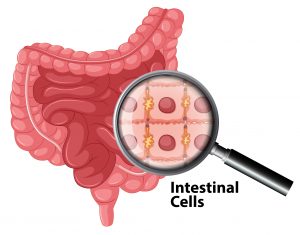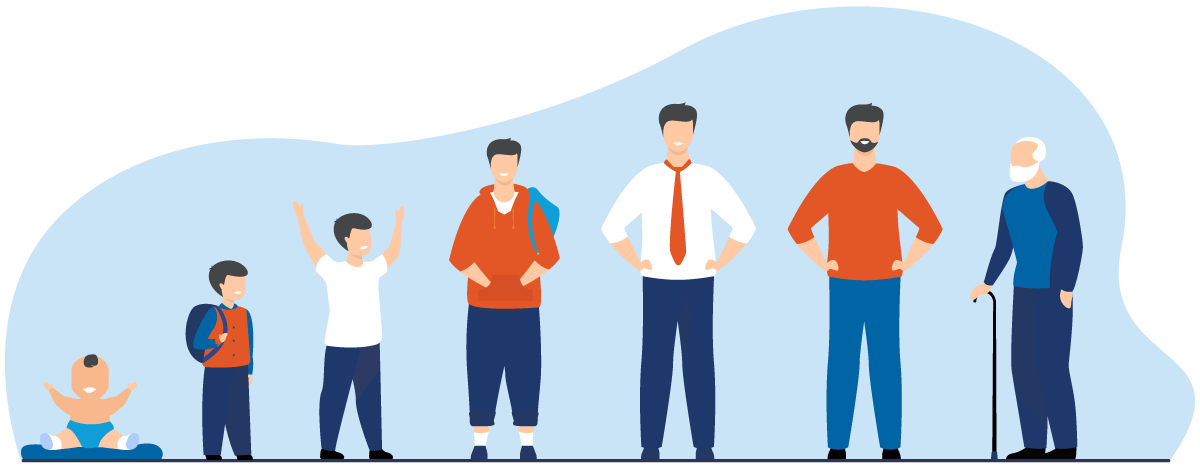Human longevity
A long healthy life-span is everybody dream. A long human life span – exceeding eight decades or more – is becoming increasingly attainable in the developed countries. The remarkable increase in lifespan enjoyed by modern humans is due to major advances in preventing, delaying or curing individual pathologies such as infections,hypertension, type 2 diabetes, and even some forms of cancer.

The challenge now is to promote health span and to reduce the duration and severity of morbidity that precedes death. High incidence of diseases such as Alzheimer’s is a Damocles sword in the effort to increase human life span. It is estimated that by 2030, there will be 56 million cases of Alzheimer’s diseases patients!
So, healthy aging and longevity is paramount for the life of millennials who makes up almost 25-30%.Lets look some of the causes of aging and how microbiome plays a key role in the healthy aging processes.
Human longevity
A long healthy life-span is everybody dream. A long human life span – exceeding eight decades or more – is becoming increasingly attainable in the developed countries. The remarkable increase in lifespan enjoyed by modern humans is due to major advances in preventing, delaying or curing individual pathologies such as infections,hypertension, type 2 diabetes, and even some forms of cancer.

The challenge now is to promote health span and to reduce the duration and severity of morbidity that precedes death. High incidence of diseases such as Alzheimer’s is a Damocles sword in the effort to increase human life span. It is estimated that by 2030, there will be 56 million cases of Alzheimer’s diseases patients!
So, healthy aging and longevity is paramount for the life of millennials who makes up almost 25-30%.Lets look some of the causes of aging and how microbiome plays a key role in the healthy aging processes.
What causes aging?
Stem cell exhaustion
Altered intercellular communication
Genomic instability
Telomere attrition
Epigenetic alterations
Loss of protein homeostasis
Altered nutrient & growth factor sensing
Mitochondrial dysfunction, and cellular senescence & accumulation of senescent cells
What causes aging?
Stem cell exhaustion
Altered intercellular communication
Genomic instability
Telomere attrition
Epigenetic alterations
Loss of protein homeostasis
Altered nutrient & growth factor sensing
Mitochondrial dysfunction, and cellular senescence & accumulation of senescent cells

Latest studies are showing most of these are directly or indirectly are caused by low level chronic inflammation. Otherwise ‘Inflammaging’ refers to the persistent, low-grade inflammation with increased proinflammatory molecules. Epidemiological studies show that biomarkers of inflammation are robust predictors of chronic diseases and mortality in older humans. Our focus is to study the critical role of microbiome in chronic inflammation prevention and thereby, enhancing human longevity.
Microbiome & Human Longevity

Human commensal microbiota develop and evolves with us from our birth. The intestinal microbiota is probably the most adaptive component of the human being, allowing for the optimization of its host’s physiology from daily life circumstances to increased life span scales and human evolution. It eventually becomes a vital organ called “core microbiome” optimized for our specific diet, genetic background and life style. Our core microbiome determines our disease resistance physiology and longevity patterns.
Extreme-age people – centenarians – have a microbiota that differs from those of older adults and their key microbiome metabolite profile is also unique. Lifestyle, and diet, play a key role, since aging is often accompanied by a reduction in the amount and variety of fiber-containing foods. Loss of diversity in the core microbiota groups is associated with increased frailty and reduced cognitive performance. The healthy diet diversity index positively correlated with three microbiota diversity indices.
Loss of core microbiome with age with changes in key microbiome metabolite production is a key step which accelerates aging process. We are developing microbiome diversifying and longevity-enhancing secondary metabolite production technologies for several age-groups.
Microbiome & Human Longevity

Human commensal microbiota develop and evolves with us from our birth. The intestinal microbiota is probably the most adaptive component of the human being, allowing for the optimization of its host’s physiology from daily life circumstances to increased life span scales and human evolution. It eventually becomes a vital organ called “core microbiome” optimized for our specific diet, genetic background and life style. Our core microbiome determines our disease resistance physiology and longevity patterns.
Extreme-age people – centenarians – have a microbiota that differs from those of older adults and their key microbiome metabolite profile is also unique. Lifestyle, and diet, play a key role, since aging is often accompanied by a reduction in the amount and variety of fiber-containing foods. Loss of diversity in the core microbiota groups is associated with increased frailty and reduced cognitive performance. The healthy diet diversity index positively correlated with three microbiota diversity indices.
Loss of core microbiome with age with changes in key microbiome metabolite production is a key step which accelerates aging process. We are developing microbiome diversifying and longevity-enhancing secondary metabolite production technologies for several age-groups.



